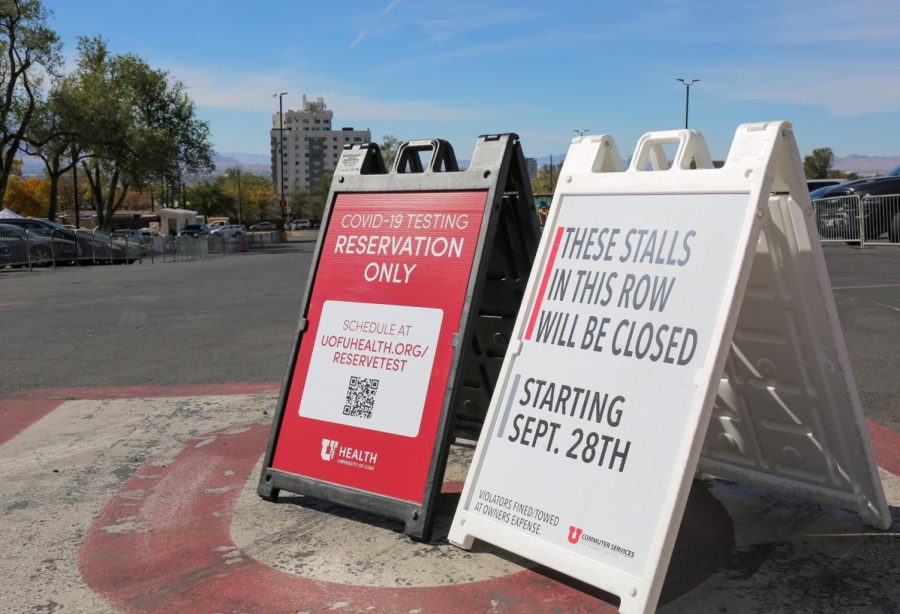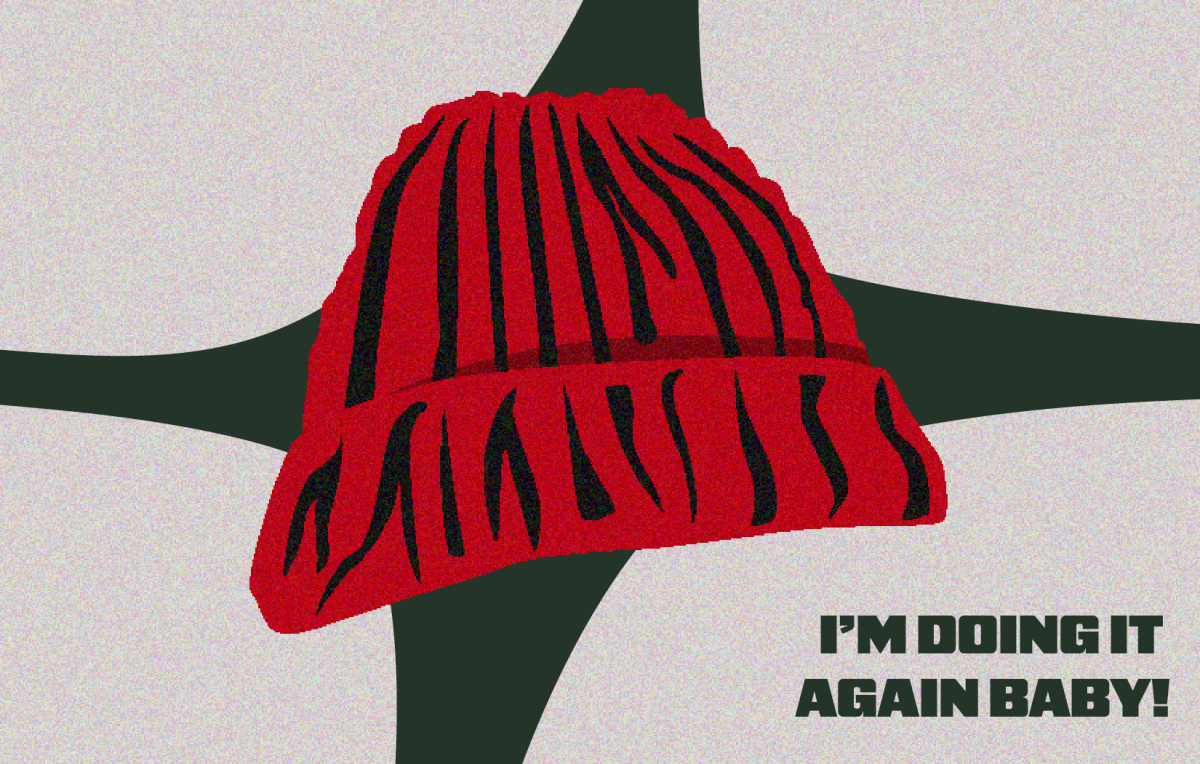Despite Statewide Plans, U Students On Campus Will be Tested Weekly for COVID-19
Signs in front of the Rice Eccles COVID-19 testing station at the University of Utah in Salt Lake City. (Photo by Tom Denton | Daily Utah Chronicle)
January 12, 2021
As colleges across Utah prepare to bring students back to campus and begin classes for the spring semester, the Utah System of Higher Education’s commissioner decided on a new plan, released on Jan. 5, which entailed having students tested the first week of the semester with random surveillance tests each week. The new plan focuses heavily on saving supplies and increasing compliance.
This plan is in contrast to the one proposed in November 2020, when Governor Gary Herbert ordered colleges and universities to begin testing their students weekly, citing that college-aged adults are contracting and transmitting COVID-19 at the highest rates.
According to the Center for Disease Control and Prevention, 22.7% of positive test results are coming from the 18-29 age group.
The November mandate was specific to students living on campus or taking in-person classes. The tests were free to students and the number of tests at each school varied.
The hope was that students would get tested before attending classes or moving in, therefore slowing the spread of the virus. Some schools, like Utah State University, had major quarantine events in the dormitories due to outbreaks. Government officials and institutions would like to prevent those types of situations from occurring during the spring semester.
University of Utah Housing plans to test students living on campus weekly despite the USHE’s commissioner, Dave Woolstenhulme’s, recommendation to do one test at the beginning of the semester to save supplies.
At the U, students living on campus will have to comply with the testing policies or will face consequences.
“HRE will be following up with residents who are not tested. Residents who continuously fail to meet the testing expectation will go through the HRE student conduct process which could end with eviction for non-compliance,” said Barb Remsburg, the Executive Director of Housing and Residential Education.
According to the U’s COVID-19 website, students attending in-person classes are “expected” to participate in weekly testing, but not required. Each Thursday, students should receive an email to their Umail account on how and where to be tested.
The U and the other higher education institutions will be required to participate in “randomized surveillance testing.” This type of testing is meant to save money and it is believed it will also aid in compliance. Random surveillance testing is only applicable to students living on campus or those who attend in-person classes.
USHE encourages institutions to provide additional testing strategies outside of the new mandate. Some examples of this include symptom check surveys, wastewater testing, regular athletic testing, contact tracing and other randomized or mandatory testing.
Institutions may choose to focus on specific residence halls, classes or programs in which they believe are at higher risk for transmitting the virus. The U is taking one of the more aggressive approaches out of all Utah higher education facilities.
As of now, students living on campus will be tested weekly throughout the semester, which is approximately 3,200 students. Students taking in-person classes will be required to test at the beginning of the semester and again in March. Students on campus will be a part of weekly randomized surveillance testing, which is projected to include about 15% of students.
Any students, including those completely online, will be able to access testing throughout the semester, including if they are asymptomatic.
“Our COVID-19 positive cases held fairly steady and were manageable for fall semester, and we’re optimistic that this additional testing for spring semester will again help contain and slow the virus not only on our campus but also in the broader community,” said Christopher Nelson, the U’s Communications Director.








